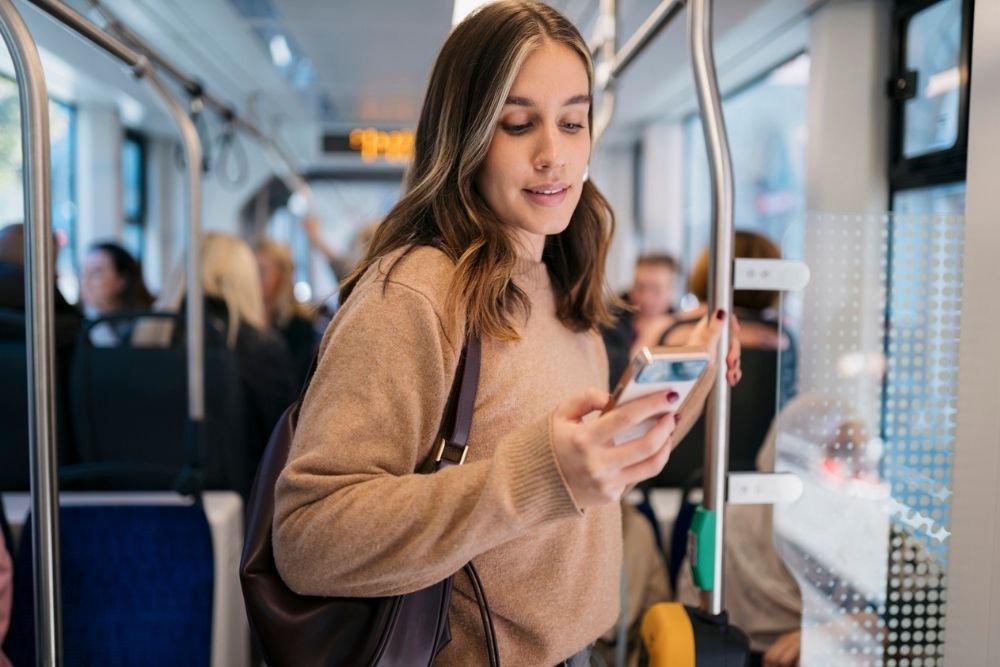Social media like Facebook, Instagram, and TikTok have become a part of the daily routine for many people. While social media can be a way to connect, it’s important to also acknowledge the problems it can create. At Palms Behavioral Health, in Harlingen, Texas, we encourage our patients to exercise caution when using online platforms that can impact their mental health.
Benefits of Social Media
Social media can be a powerful tool for sharing information and resources when used in moderation. When not used in excess, social media can help people improve their physical and mental health and improve their sense of well-being. As shown during the pandemic, it can compensate for the geographical distance between loved ones.
Social Media Addiction
You may have noticed that when you get onto your favorite social media platform, it can be easy to lose track of time and difficult to log out. Research confirms that overuse of social media can lead people to neglect their responsibilities and develop a compulsive need to escape from daily life. Much like a substance use disorder, social media use triggers the release of dopamine at higher levels than normal. This “feel-good” chemical floods the brain and increases the chances that we will return to this behavior over and over, to maintain those unnaturally high dopamine levels. Over time, we can become addicted to social media and even experience withdrawal symptoms if we choose or are forced to stop.
Other Adverse Consequences
Social media has other negative side effects, beyond being potentially addictive. When we observe social media, we are seeing what other people choose to post, which may be only the highly curated highlights from their lives or an entirely invented fiction. Even so, our brains can start to compare the reality of our own lives against what we perceive about others, which can lead us to feel:
- Inadequate
- Jealous
- Sad
- Increased anxiety and depression symptoms
False Connection
While social media is often touted as a means to stay connected to other people, it often fuels isolation. One study published in the American Journal of Medicine found that the more time people spent on social media, the more isolated they felt. People who spend less than half an hour per day utilizing online platforms feel more connected to the people in their lives.
Young People and Social Media
Teens and children are especially at risk for the negative impacts of social media. In fact, one study found that social media had a worse impact than binge drinking or using hard drugs in children and teens. One reason for this may be the pervasiveness of social media. Kids and teens aren’t just checking their social media once or twice per day. They are checking it before bed, as soon as they wake up, and throughout the day, increasing the opportunities for harm, such as:
- Sleep disturbances
- Distractions during school and study time
- Interactions with online bullying
- Allowing rumors to spread more thoroughly and rapidly
- Showing young people unrealistic images of how other people live
- Decreased opportunity to learn and practice people skills
- Decreased confidence in face-to-face interactions
Limiting the Adverse Impact of Social Media
You have the power to decide what impact social media will have on your life and the lives of your children.
- Start by setting limits, not just on social media, but for how much time you and your family are spending online.
- Try to set up your living space so that children are never using the internet in a room by themselves.
- Don’t take electronics to bed, and do not allow your children to do so.
- Have family conversations about how gossip, sharing explicit photos, and cyberbullying can cause long-term harm.
- Encourage in-person interactions with friends. Make your home a welcoming place for your child’s friends to visit.
- Encourage your child to talk to you about anything that makes them uncomfortable in online environments.
- Just as your brain may need a break from the news sometimes, you and your family may also benefit from disconnecting from social media from time to time. Schedule a break and then have a discussion with your family about what they observed about their own behaviors and mood during the break from social media.
At Palms Behavioral Health, we treat adolescents, adults, and seniors with individualized treatment plans that meet each patient’s unique mental health needs. Our staff are trained in trauma-informed care and utilize evidence-based practices to support recovery.






